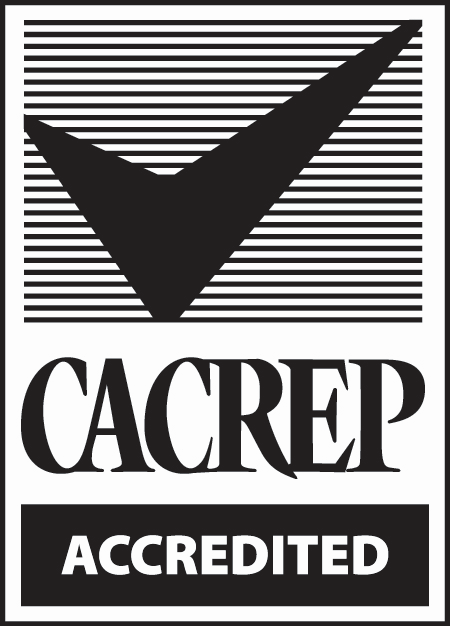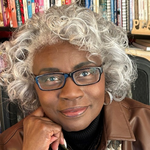Register for an Upcoming Information Session
Transform Lives Through Counseling
Transform someone’s life as a counselor. School counselors and clinical mental health counselors transform the lives of individuals in the communities they serve.
Your calling is to do more than just listen. It's to heal, empower, and advocate for change. At George Mason University, we don't just train counselors, we cultivate social justice advocates and compassionate, ethical leaders prepared to address the complex mental health and socio-emotional needs of diverse populations.
George Mason's CACREP-accredited curriculum offers comprehensive preparation for professional licensure in Virginia, fulfilling requirements for the Licensed Professional Counselor (LPC) credential and PK-12 school counseling licensure. You'll complete 700 hours of applied fieldwork, gaining hands-on experience in diverse settings such as community agencies, private practice, higher education, or school systems.
Whether your career goals include supporting children and families in schools or guiding adults through life's most complex challenges, Mason's counseling programs provide the skills, supervision, and mentorship to help you succeed. With full-time and part-time pathways, you have the flexibility to pursue your purpose while balancing work and life commitments.
Why Choose George Mason CEHD
Integrated, dual-track advantage. Our curriculum is built on a shared, core foundation. Classes are scheduled within a cohort model so students in both Clinical Mental Health and School Counseling concentrations take foundational courses together, fostering a comprehensive understanding of counseling across professional settings. This integrated approach provides easier pathways to licensure in both tracks should your career goals evolve.
CACREP-accredited excellence. Our master's programs are CACREP accredited, the highest standard of quality in professional counselor preparation, ensuring your degree aligns with professional standards and prepares you for counseling licensure in Virginia.
Support for future counselors. We believe counseling education should be accessible. Benefit from a 15% tuition discount and access to numerous scholarship opportunities.
A global center for advocacy. Leverage our prime location near Washington, DC. This proximity grants you unparalleled access to diverse clinical mental health settings and educational institutions, connecting your fieldwork and research to a national conversation on mental health and school counseling.
Expert, licensed faculty. Your courses are taught by a dedicated faculty of licensed practitioners and active researchers who provide mentorship tailored specifically to your professional goals.
What Sets Us Apart?
Immersive applied fieldwork. Bridge the gap between theory and practice with a required 700 hours of practicums and internships. Our extensive network offers placements across community agencies, higher education, private practice, and public school systems, offering students networking opportunities for future employment (94% attain a job upon graduation).
Social justice at the core. Our curriculum places a heavy emphasis on multicultural competence, advocacy, and leadership, training you to be a proactive change agent who identifies and addresses systemic barriers that impact client and student well-being.
Flexible options for working professionals. Designed to accommodate your life, our MEd in Counseling programs offer full-time and part-time formats.
Advanced credentialing. For those who already possess a master's degree in counseling, our post-master's certificates allow counselor-graduates to gain additional specialized credentials for career advancement.
The Counseling Program is committed to preparing counselors who promote the social, psychological, physical, and spiritual health of individuals, families, communities, and organizations in order to contribute to the advancement of global well-being. The program strives for national and international excellence in implementing a counseling perspective that provides a foundation in basic counseling skills and focuses on social justice, multiculturalism, internationalism, advocacy, and leadership. It is our belief that a global perspective on development across the life span, and an understanding and appreciation of multiculturalism, diversity, and social justice, are integral to the preparation of professional counselors, requiring that professional counselors are prepared to assume leadership roles, be proactive change agents, and become advocates for social, economic and political justice. The program is committed to accomplishing this mission by working through interdisciplinary teams as well as promoting the interconnectedness of teaching, research, service, and professional practice. Through this mission, faculty will facilitate a continued tradition of international, national, and regional leadership through the development of collaborative partnerships and projects, research, publications, presentations, consultation, and training.
The Counseling program entails coursework and field experiences that will prepare students to be School Counselors or Clinical Mental Health Counselors (Licensed Professional Counselors). The program objectives and student learning outcomes of the program are as follows:
Program Objective A: To equip students with the knowledge and skills to become ethical and effective counselors in a complex society with diverse populations, with a concentration on practicing either as a clinical mental health counselor or a school counselor
Student Learning Outcome 1: Professional Counseling Orientation and Ethical Practice
- Students will develop an understanding of and ability to function effectively within ethical guidelines.
Student Learning Outcome 2: Social and Cultural Diversity
- Students will develop an understanding of the impact of social and cultural factors on diverse populations and recognize opportunities to address social injustices as appropriate.
Student Learning Outcome 3: Human Growth and Development
- Students will develop an understanding of factors that impact human development and strategies for promoting wellness throughout the life span.
Student Learning Outcome 4: Career Development
- Student will develop an understanding of how to facilitate career development.
Student Learning Outcome 5: Counseling and Helping Relationships
- Students will develop skills to facilitate effective counseling relationships and the ability to conceptualize cases and plan interventions with clients/students from multicultural backgrounds.
Student Learning Outcome 6: Group Counseling and Group Work
- Students will develop an understanding of group dynamics and how to facilitate multicultural/diverse groups.
Student Learning Outcome 7: Assessment and Testing
- Students will develop the ability to utilize assessment appropriately within the counseling process.
Student Learning Outcome 8: Research and Program Evaluation
- Students will develop an understanding of research design and how to utilize data.
Student Learning Outcome 9: Professional Concentrations
- Clinical Mental Health Counseling (CMHC) Professional Concentration Students will develop an understanding of case conceptualization, treatment planning, prevention, and intervention related to mental health counseling.
- School Counseling (SC) Professional Concentration Students will develop an understanding of the roles of school counselors and strategies for promoting equity as appropriate.
Program Objective B: To prepare students with appropriate dispositions to engage in ethical, social justice focused counseling with an intersectional praxis, and to attend to growth, self-awareness, interpersonal relationships, and collaboration.
Student Learning Outcome 10: Professional Dispositions
Program Objective C: To recruit, support, and retain counseling students from diverse backgrounds.
Program Objective D: To provide counseling training that is grounded in the latest knowledge in the field and is responsive to current and changing needs of the communities we serve, including attending to the intersecting identities of our clients/students within a social justice framework.
Vital Statistics
Number of Graduates in the Past Year
- Clinical Mental Health Counseling (CMHC): 40
- School Counseling (SC): 24
Degree Completion Rate
Licensure Examination Pass Rate
- CMHC: 100%
- School Counseling: The Virginia Department of Education (VDOE) does not require a credentialing examination for school counselors.
Combined Employment and Doctoral Admissions Rate
Annual Report
The Mason Counseling Program reviews data and makes changes to improve our program on an annual basis.










